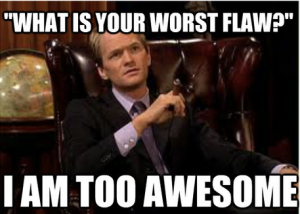As I was preparing a candidate for their final interview, he closed the call with this statement:
“I feel like I’ve been treated like a person, not a candidate… thank you for that. It’s so rare and it really makes you guys stand out.”
This was music to my ears!
Riding high on my giddiness, I publicly posted a snippet of the above quote on Twitter and LinkedIn. Not more than 24 hours later, I had a slew of direct/private messages asking something along the lines of “how can I make this happen for me, as a candidate?”
I had to take pause on this because I failed to realize that few candidates realize that it’s not them, it’s us!!! This has nothing to do with what you (candidate) are (or aren’t) doing. The responsibility lies 100% on us, the Recruiter/Recruiting Team/Hiring Leader that you are working with. It’s our responsibility to reach out with updates when we have them – or don’t have them. It’s our responsibility to connect with you on a human level. It’s our responsibility to give you the respect that you deserve as a candidate.
Candidate experience can be two-fold.
On one hand, very much like a company’s culture, how a Recruiter approaches candidate experience can come from the top. How is the organization differentiating themselves in this fight for talent? How will candidates remember the company after the interview process is over? What will candidates tell their friends about the company, regardless of whether they receive an offer?
On the other hand, candidate experience can be very recruiter-driven. How well do I (recruiter) want to be remembered by you (candidate)?
I don’t know who to address this blog to, so I will address the two parties.
To candidates — You are not doing anything “wrong” when your experience is subpar. No excuses from us as recruiters. It’s not ok (in my book).
To recruiters / hiring leaders — Let’s follow the golden rule of recruiting… Treat candidates the way you want to be treated.
PS – Happy Valentine’s Day!


